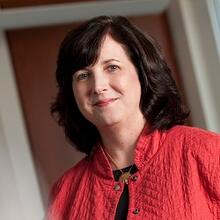COMPUTATIONAL SOCIAL SCIENCE WORKSHOP
Abstract: We investigate the effect of transactive memory systems on the performance of hospital trauma resuscitation teams. Known colloquially as knowledge of who knows what, a transactive memory system (TMS) enables teams to assign tasks to the most qualified members and to rely on those members to perform and coordinate their tasks effectively. The uncertain nature of trauma teams’ tasks and the extreme time pressure under which they operate make TMS especially valuable in the context of trauma care. Behavioral indicators of transactive memory are coded from video recordings of trauma resuscitations in a hospital emergency department. Objective measures of team performance, including patient lengths of stay in the intensive care unit and in the hospital, are obtained from hospital records. Results of analyzing data from 121 patients reveal that patients treated by trauma teams with strong TMS experience significantly shorter lengths of stay in the ICU and in the hospital than patients treated by trauma teams with weaker TMS. The magnitude of the effect was large: increasing TMS by one standard deviation (0.27 on a five-point scale) was associated with a reduction in hospital length of stay of 3.4 days and a reduction in ICU length of stay of 2.0 days. Reductions in length of stay benefit patients, reduce health care costs, and free up hospital resources to care for other patients, an outcome that is especially valuable in times such as the current pandemic. We conclude with a discussion of how to strengthen TMS in trauma resuscitation teams. (Joint work with Jerry Guo, Ki-Won Haan, Matthew Rosengart, Cindy Teng, and Jeremy Kahn)
Linda Argote is the Thomas Lord Professor of Organizational Behavior and Theory at the Tepper School of Business at Carnegie Mellon University, where she directs the Center for Organizational Learning, Innovation and Knowledge. Linda’s research focuses on organizational learning, organizational memory, knowledge transfer, and group processes and performance. Her book, Organizational Learning: Creating, Retaining and Transferring Knowledge was a finalist for the Terry Book Award of the Academy of Management. Her article with Eric Darr and Dennis Epple, “The Acquisition, Transfer and Depreciation of Knowledge in Service Organization: Productivity in Franchises,” was recognized as one of the most influential articles published in Management Science during its first 50 years. Her article with Paul Ingram, “Knowledge Transfer in Organizations: A Basis for Competitive Advantage in Firms,” was identified as one of the most influential articles published in Organizational Behavior and Human Decision Processes during its first 50 years.
This virtual workshop is open to the Yale community. To receive Zoom information, you must subscribe to the Computational Social Science Workshop. Please subscribe at this link: https://csap.yale.edu/computational-social-science-workshop.
This workshop is cosponsored by the Center for the Study of American Politics (CSAP) and the Yale School of Management (SOM) with support from the Initiative for Leadership and Organization at SOM.
